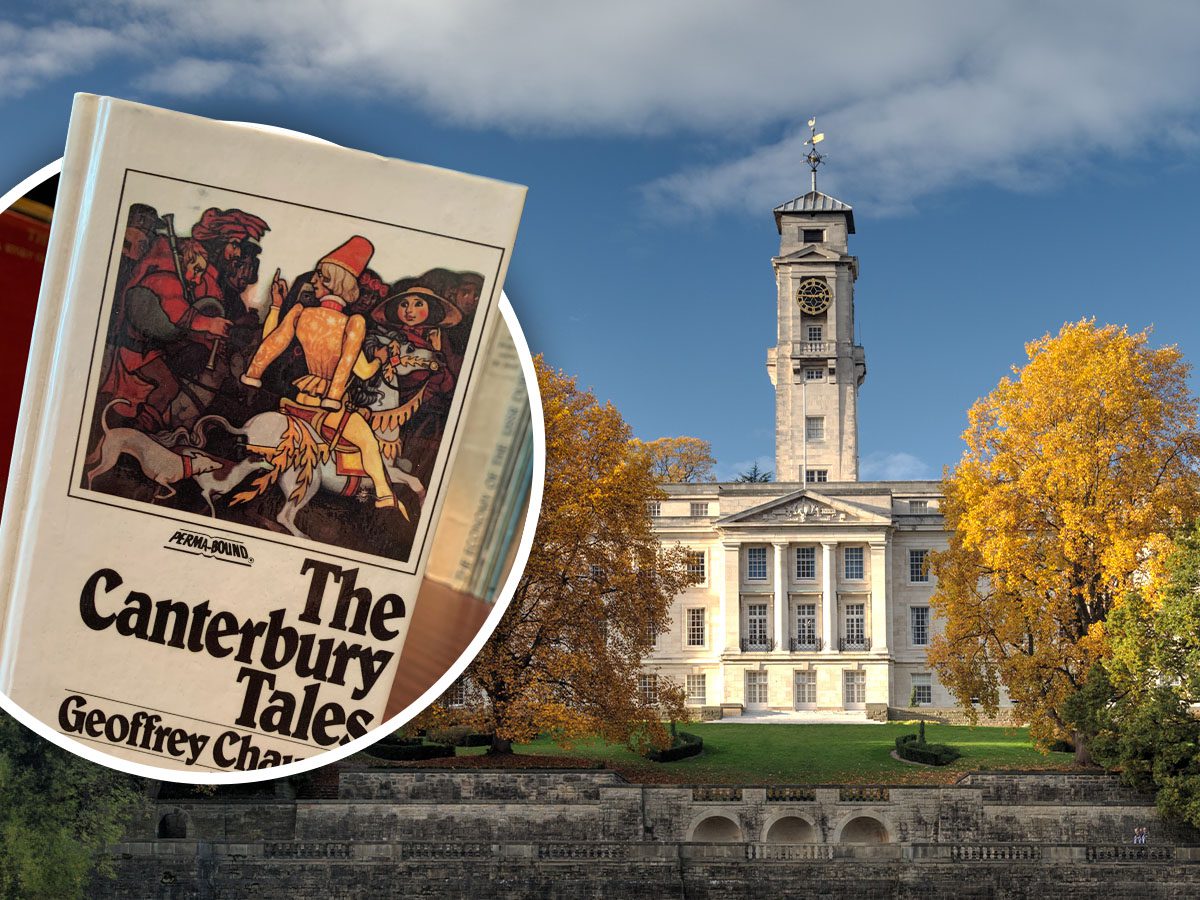
Nottingham University of England is being slammed for issuing a trigger warning on multiple medieval English works, including Geoffrey Chaucer’s Canterbury Tales for “expressions of Christian faith.” The trigger warning sent out from the university to students taking the module “Chaucer and his Contemporaries” warned them of “incidences of violence, mental illness and ‘expressions of Christian faith’ in the works of Chaucer and fellow medieval writers William Langland, John Gower, and Thomas Hoccleve,” according to The Daily Mail. Other works included Sir Gawain and the Green Knight and Piers Plowman. Canterbury Tales is a collection of short tales featuring an eclectic group of pilgrims as they make their way from London to the Tomb of Saint Thomas Becket.
Andrea Williams, chief executive of Christian Concern, called the trigger warning “ludicrous.” “The Bible is foundational to understanding the history of English literature. Without an understanding of the Christian faith there will be no way for students to access the world of Chaucer and his contemporaries. It’s ludicrous to issue such trigger warnings. From what point in history are we going to censor literary texts, given most are steeped in a Christian worldview?” She added that “Trigger warnings for Christian themes in literature are demeaning to the Christian faith and stifle the academic progress of our students.” She further went on to say that universities should encourage “the freedom of academic thought” and avoid “planting loaded warnings about the Christian faith.” Frank Furedi, called the label “weird.” “Warning students of Chaucer about Christian expressions of faith is weird. Since all characters in the stories are immersed in a Christian experience there is bound to be a lot of expressions of faith.” He said the problem was “virtue-signalling, ignorant academics.” There were no trigger warnings given for any of the mentions of rape or language that readers could have found antisemitic.
A spokesperson from the university defended the decision. “But a university spokesperson said: ‘The University of Nottingham champions diversity, and its student body is made up of people of all faiths and none,” the spokesperson noted. “This content notice does not assume that all our students come from a Christian background, but even those students who are practising Christians will find aspects of the late-medieval worldview they will encounter in Chaucer and others alienating and strange.” Trigger warnings have been a topic of discussion for some time, with advocates stating they protect readers from accessing hurtful, possibly traumatic information and scenes, while detractors equate it to a form of censorship and lack of critical thinking. A recent analysis of a dozen studies on trigger warnings found they were not effective. Guy Boysen, a professor of psychology at McKendree University, in Lebanon, IL stated using trigger warnings has become popular, but that “the practice of using trigger warnings preceded any scientific investigation of the effects.” In fact, according to the analysis, readers experienced more anxiety about a work with trigger warnings than when reading it without the warnings. Another researcher, Victoria Bridgland, noted trigger warnings only warn of potentially disturbing content, but not what to do about it. “People can mentally prepare themselves by using emotion regulation techniques,” said Bridgland. “However, they have to be specifically instructed on how to do so.”


